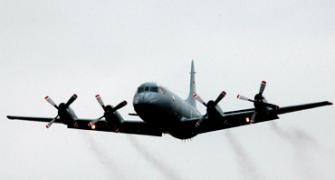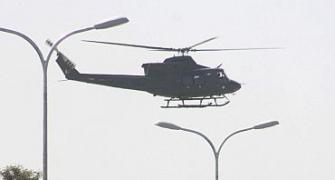Supporting Pakistan government's investigations into the circumstances surrounding his death, the US Secretary of State Hillary Clinton said, "His work reporting on terrorism and intelligence issues in Pakistan brought to light the troubles extremism poses to Pakistan's stability. We support the Pakistani government's investigation into the circumstances surrounding his death," she said in a statement.
"We remain committed to helping the government and people of Pakistan as they work to bring peace and stability to the country," she added.
"Syed Saleem Shahzad's killing was payback, other journalists and human rights activists said they believed -- not from militants, but from Pakistan's fearsome spy agencies", The New York Times and Washington Post reported as the papers gave prominence to his killing.
According to the Post, Shahzad's killing also renewed attention on the alleged crossover between militants and Pakistan's security forces, some of which he outlined in his recent article for the Hong Kong-based Asia Times Online' for which he was the Pakistan bureau chief.
According to Shahzad's reporting, last week's attack on Karachi naval base was a response to the Pakistani Navy's detection of the Al Qaeda cells within its ranks, and it followed failed discussions between the navy and al-Qaeda about the release of naval officers arrested on suspicions of links to the terrorist group, the daily said.
"The armed forces chiefs have been deeply angered by the humiliation they have suffered from both episodes, and in particular the many questions raised about their competence by Pakistan's increasingly rambunctious news media," New York Times said.
Journalists reacted to Shahzad's death with horror and said the military and the chief intelligence agency, the directorate for Inter-Services Intelligence, were sending a warning to others, the paper said.
NYT said Shahzad's killing comes in the wake of an award-winning investigative reporter, Umar Cheema's kidnap and being roughed up over six hours on the outskirts of Islamabad last September.
Cheema had written several articles for The News, a prominent daily that were critical of the army. He blames the ISI, which is an integral part of the military, for his abduction.
"This is the law of the jungle, of armed actors who can kill you or hang you upside down until you are dead, and one of them is a state body, and that is appalling," Ali Dayan Hasan, the country representative for Human Rights Watch in Pakistan said.
Pakistan became the deadliest country in the world for journalists last year as eight journalists were killed there in the course of their work, the Committee for Protection of Journalists reported.
Six of the eight were killed in suicide bombings or cross-fire as the insurgency has intensified in Pakistan, but journalists have also suffered beatings, disappearances, and threats from the military and intelligence service as well as from militant groups.







